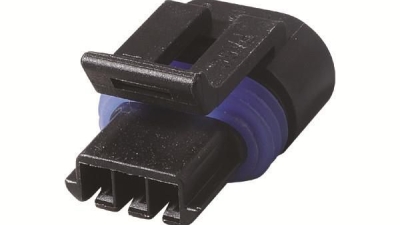How to Select the Best Ecu Car Solutions for Global Supply Chain Success
Table of Contents
- Understanding the Role of ECU in Global Supply Chain Management
- Key Features to Look for in ECU Solutions for Automotive Needs
- Evaluating ECU Suppliers: Criteria for Long-Term Partnerships
- Assessing Integration Capabilities of ECU Systems Across Borders
- Cost vs. Quality: Finding the Right Balance in ECU Solutions
- Future Trends in ECU Technology That Impact Supply Chains
- Understanding the Importance of Female TPS Connectors in the Crankshaft Position Sensor for Leopaard Cars
- FAQS
- Conclusion
- Related Posts
In today’s fast-changing world of cars and tech, picking the right ECU solutions is pretty darn important if you want your global supply chain to stay on point. As vehicles keep getting smarter and more complex, the need for top-notch wire harnesses has shot up big time. At Yueqing Haidie Electric Co., Ltd., we’re pretty proud of our ability to craft custom wire harness solutions that fit perfectly with the automotive industry’s needs. Thanks to our know-how and dedication to quality, we’ve earned a lot of praise from customers worldwide, becoming a trusted partner when it comes to delivering key auto parts.
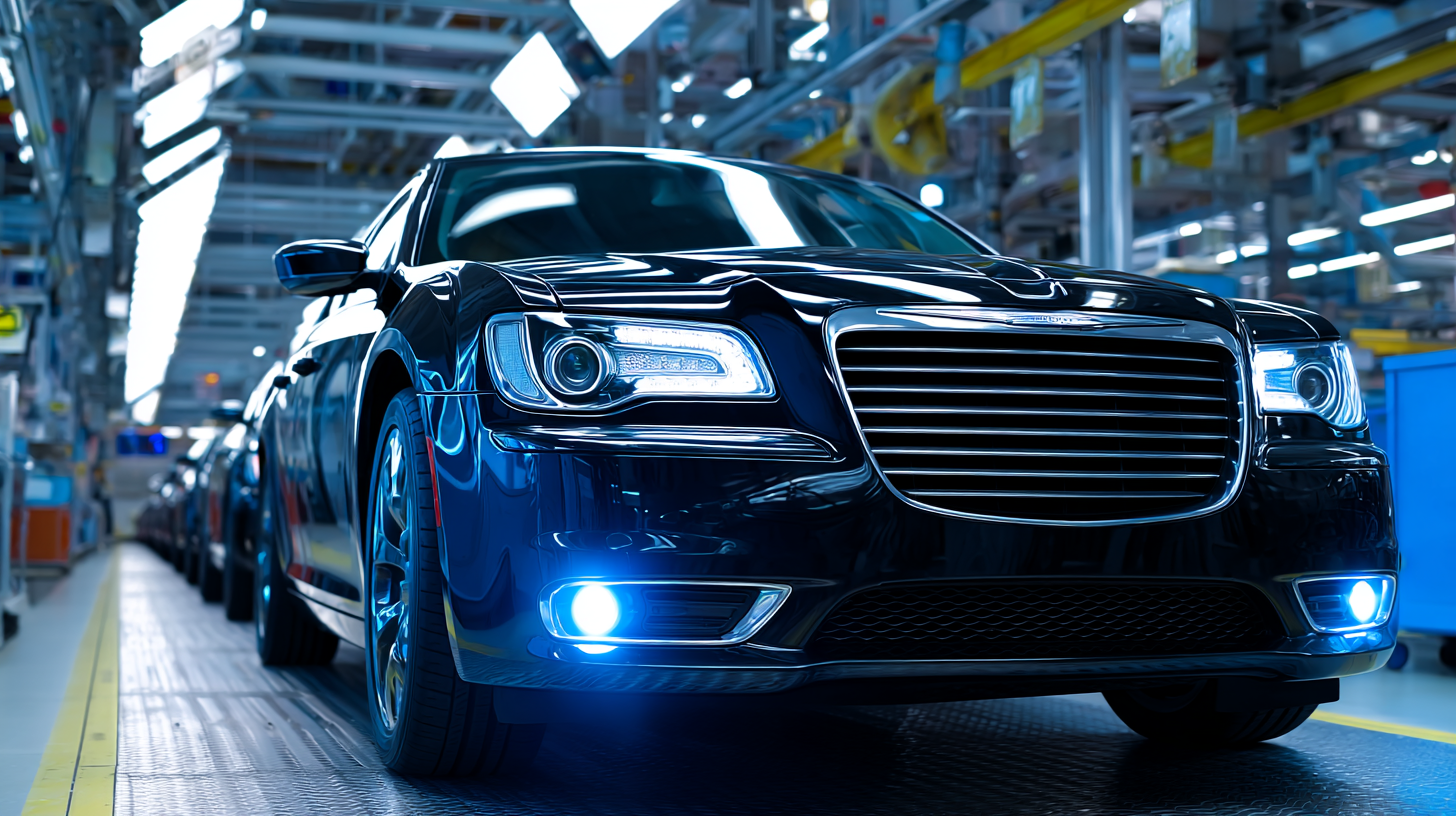
In this blog, I want to chat about the key things you should keep in mind when picking the right ECU car solutions. We’ll highlight how innovation and reliability are game-changers in keeping your supply chain running smoothly and efficiently. So, join us as we dive into some strategies that can help streamline your automotive parts process and give your overall operations a real boost.
Understanding the Role of ECU in Global Supply Chain Management
The Engine Control Unit, or ECU for short, is pretty much the heartbeat of modern cars these days. It’s a key player when it comes to making vehicles run smoothly, efficiently, and reliably — especially when you think about the global supply chains behind them. Basically, ECUs are like tiny computers inside your car, managing everything from how the engine gets fuel to keeping emissions in check. And let’s be honest, all these controls don’t just make your ride better—they also help car makers meet tough environmental laws, which is a big deal in today’s connected world.
Getting a good grip on how ECUs are managed in the supply chain can seriously boost production, cut costs, and keep things running without a hitch. Companies that invest in the latest ECU tech can streamline their operations, react faster to market shifts, and keep the quality high. As the car industry shifts toward electric and autonomous vehicles, choosing the right ECU solutions isn’t just a nice-to-have — it’s essential. Businesses need to consider how reliable their suppliers are, whether the tech fits with their existing systems, and if it can grow with their needs. Basically, picking the right ECU partners can make all the difference in staying competitive and successful down the road.
ECU Contribution to Global Supply Chain Efficiency
Key Features to Look for in ECU Solutions for Automotive Needs
When you're choosing ECU (Electronic Control Unit) solutions for automotive projects, there are a few key features you really want to keep an eye on to make sure your supply chain runs smoothly worldwide. I came across a report from IHS Markit that says the automotive semiconductor market is expected to hit around $50 billion by 2025. That really highlights how critical it is to pick advanced ECU solutions that can handle the growing complexity of electronic systems in vehicles. One big thing to look for is interoperability—I mean, the ECU solutions should easily work with your current hardware and software without a hassle, so everything runs efficiently and you don’t waste time trying to make things fit.
On top of that, scalability is super important, especially since automotive tech is moving so fast toward electric and self-driving cars. McKinsey research suggests that by 2030, software could make up as much as 30% of a vehicle’s total value. That means you want ECU solutions that can grow and evolve as technology advances, without needing a total overhaul every few years. And hey, security can’t be ignored either—over 80% of cars are expected to be connected to the internet by 2025, so making sure they’re protected from cyber threats is a must. Having strong security features built into your ECU solutions is just smart, plain and simple.
Evaluating ECU Suppliers: Criteria for Long-Term Partnerships
When you're looking at ECU (Electronic Control Unit) suppliers for long-term partnerships, it’s really important to think about a few key things that match up with the bigger goal of making your global supply chain run smoothly. A recent report from Gartner mentioned that, quite surprisingly, about 80% of car manufacturers are mainly into working with partners that foster innovation and help keep costs down. This makes sense, especially now with the industry moving towards electric and connected vehicles—suddenly, you need suppliers who can keep up with the fast-paced tech stuff coming out all the time.
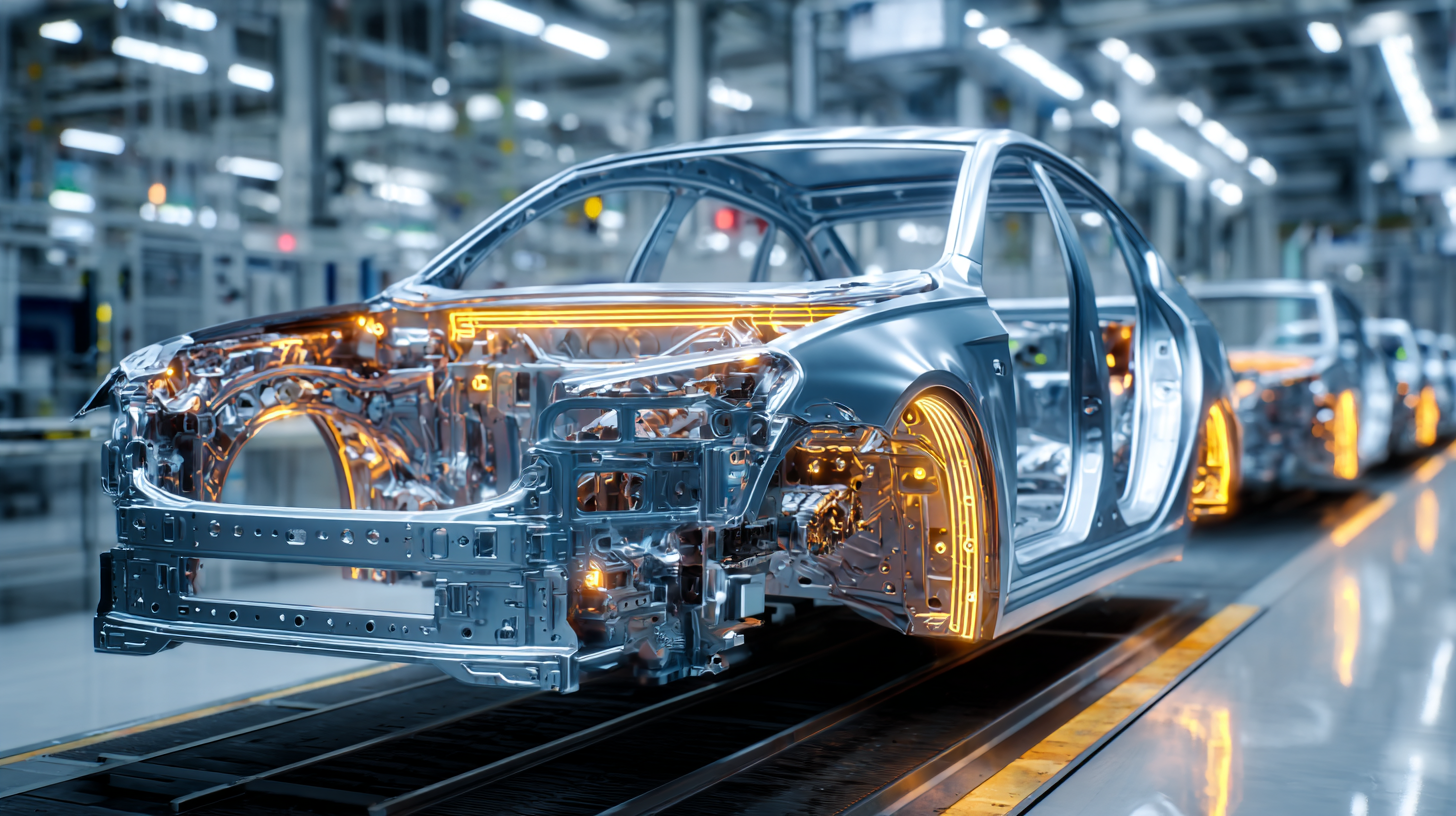
But it’s not just about innovation. You also need to look at how reliable and quick they are. There was a study by the Automotive Industry Action Group (AIAG) that found that suppliers who hit their delivery deadlines consistently can cut down production downtime by around 30%. That’s a pretty big deal. And of course, quality is everything—your suppliers really need to follow international standards like IATF 16949 to make sure everything’s top-notch and meets regulations.
So, by focusing on these things—innovation, trustworthiness, and quality—you can build strong, lasting partnerships that really boost your global supply chain, helping you stay competitive in this rapidly changing automotive world.
Assessing Integration Capabilities of ECU Systems Across Borders
When you're thinking about integrating Electronic Control Units (ECUs) into a global supply chain, assessing how well they can be integrated is pretty important. Every region kinda has its own rules, underlying tech, and communication standards, so making sure they’re compatible across borders is a big deal when choosing the right system. Companies really need to check that their ECU solutions can share data smoothly and still stay compliant with international standards. That means not only looking at the technical specs but also making sure the software can handle different local standards without a hitch.
Tip: Go for ECU systems that are modular — it makes upgrades much easier and you can add new tech that might pop up in different markets down the line.
Another thing to consider is how reliable the ECU will be under different conditions. Climate changes, terrain, usage patterns — these all vary across borders, so it’s important to pick solutions that can stand up to those differences. Doing real-world testing and stress-checking the system in local conditions will make your supply chain way more resilient.
Tip: It’s super helpful to work with local experts or partners who really understand the regional challenges. Their insights can help you find solutions that actually work well in specific markets and give you a good edge!
Cost vs. Quality: Finding the Right Balance in ECU Solutions
When it comes to choosing ECU (Electronic Control Unit) solutions, finding the right balance between cost and quality is crucial if you want your global supply chain to actually succeed. In today's really competitive automotive market, manufacturers are often stuck deciding whether to cut corners to save some bucks or to spend a bit more on better quality parts. Honestly, it can be tempting to pick cheaper options to boost profits, but skimping on quality can bite you in the long run—think more warranty claims, unhappy customers, and a damaged reputation.
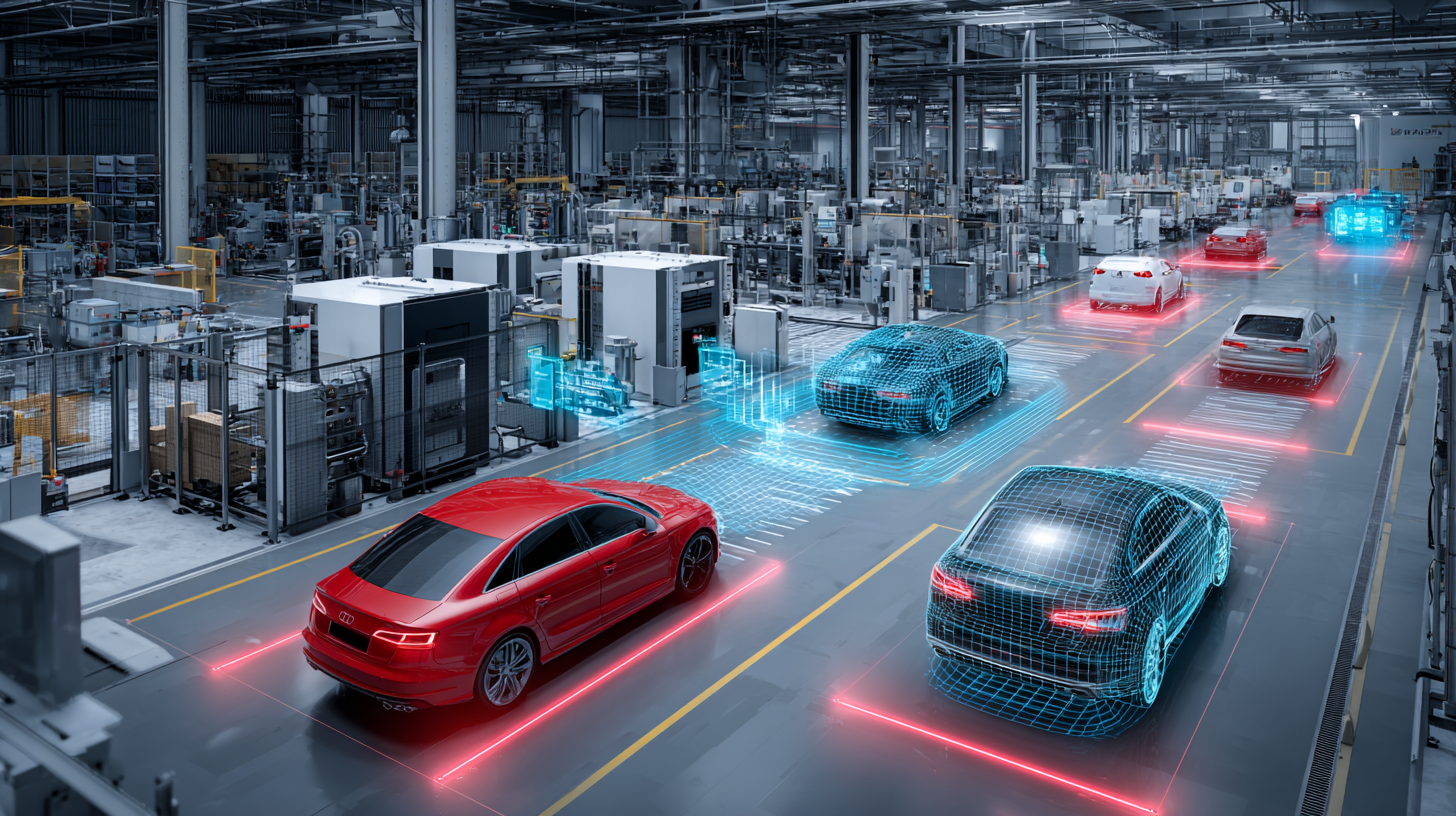
On the flip side, investing in high-quality ECU solutions usually pays off with better performance, reliability, and longer lifespan. That means less maintenance mess later on and more trust from your customers—things that really matter if you want to stay competitive in the market. Plus, with tech advancing so fast, finding suppliers who offer top-notch quality at reasonable prices isn’t as hard as it used to be.
It’s worth doingsome serious digging — evaluating potential partners not just on price, but also on their history of quality, how good their customer service is, and their ability to innovate. At the end of the day, nailing that perfect balance between cost and quality for ECU solutions is key to building a resilient, successful global supply chain.
Future Trends in ECU Technology That Impact Supply Chains
As the automotive world keeps changing, it’s pretty clear that how future trends in ECU (Electronic Control Unit) tech will impact supply chains is becoming more and more important. A recent report from McKinsey points out that integrating advanced ECU systems—like those used for driverless cars and better connectivity—could actually cut vehicle production costs by up to 30% by 2030. That’s a pretty big deal! This shift means suppliers will need to step up and adopt more sophisticated manufacturing techniques, which, in turn, will boost demand for high-quality parts that really improve overall vehicle performance.
Plus, with more electric cars on the roads and modern vehicles getting more complex, the ECU market is expected to grow a lot. According to MarketsandMarkets, the global ECU market could hit around $92 billion by 2025, growing at about 5.3% annually. That’s a significant jump, and it shows how important innovative technology is—not just for making cars smarter and more functional, but also for keeping supply chains running smoothly. Car makers should really be looking to partner up with ECU developers who are leading the way in tech, so they can stay ahead of the game amidst all these rapid changes.
How to Select the Best Ecu Car Solutions for Global Supply Chain Success - Future Trends in ECU Technology That Impact Supply Chains
| Dimension | Description | Current Impact | Future Trends |
|---|---|---|---|
| Digital Twins | Virtual representations of physical ECU components for optimizing performance. | Enhanced simulation capabilities and predictive maintenance. | Increased adoption across diverse automotive segments. |
| Software-Defined Vehicles | Vehicles that leverage software to control hardware functions. | Reduced reliance on traditional hardware updates. | Shifts towards over-the-air updates and new business models. |
| Enhanced Data Analytics | Using big data to derive insights from vehicle performance and user behavior. | Improved decision-making and product development. | Integration of AI for more predictive analysis. |
| Supply Chain Transparency | Real-time tracking of ECU components from production to delivery. | Enhanced visibility reduces delays and bottlenecks. | Blockchain technology for immutable records. |
| Sustainability | Practices oriented toward reducing the environmental impact of ECU production. | Increased regulations and consumer demand for greener options. | Adoption of circular economy principles. |
Understanding the Importance of Female TPS Connectors in the Crankshaft Position Sensor for Leopaard Cars
In modern automotive engineering, the significance of each component in a vehicle’s electrical system cannot be understated, especially when it comes to sensors and connectors. Female TPS connectors, particularly in crankshaft position sensors, play a crucial role in ensuring accurate readings essential for optimal engine performance. For Leopaard cars, the reliability of these connectors is vital to maintain efficiency and reduce the risk of mechanical failure. A quality connection not only enhances the sensor's lifespan but also contributes to the overall functionality of the vehicle's engine management system.
One exemplary product that exemplifies the importance of robust connector solutions is the 12162182/12162185 3-way waterproof automotive connector, part of the 1.5 series. This connector, designed with stringent waterproofing specifications, guarantees that the connections remain intact and functional, even in harsh environmental conditions. The advanced design minimizes the risk of corrosion and ensures that the crankshaft position sensor maintains consistent communication with the car's onboard computer. As Leopaard cars integrate sophisticated technology into their engineering, investing in high-quality connectors like the HD039YA-1.5-21 becomes paramount in achieving reliability and performance excellence.
FAQS
: Assessing integration capabilities is crucial because different regions have unique regulatory requirements, technologies, and communication standards, which affect cross-border compatibility and data exchange in ECU systems.
Companies should evaluate not only the technical specifications of the ECUs but also the software’s adaptability to various local standards and compliance norms.
Modular architectures should be prioritized, as they facilitate easier upgrades and incorporation of new technologies suitable for different markets.
ECU reliability is influenced by diverse operating conditions such as climate and terrain; testing systems in real-world scenarios is essential to ensure performance across different environments.
Collaborating with local experts or partners who understand regional challenges can provide valuable insights into ECU performance and help tailor solutions to specific market needs.
Advanced ECU systems, particularly those supporting autonomous driving and enhanced connectivity, are projected to reduce vehicle production costs by up to 30% by 2030.
The global ECU market is projected to reach $92.2 billion by 2025, growing at a CAGR of 5.3%, driven by the shift towards electrification and increasing vehicle complexity.
Innovation is crucial for ECU manufacturers to enhance vehicle functionality and streamline supply chain operations, thereby remaining competitive in a rapidly evolving market.
Manufacturers should prioritize partnerships with ECU developers who are at the forefront of advanced technology to navigate the shifting automotive landscape effectively.
Conclusion
In today’s automotive world, picking the right ECU solutions is pretty much essential if you want your global supply chain to run smoothly. The first thing you’d want to do is really get what Electronic Control Units (ECUs) do—how they help manage all those complicated processes behind the scenes. When you're looking for good ECU options, stuff like reliability, how well it plays with other systems, and its ability to integrate advanced features are huge plus points. These aspects help keep everything running seamlessly, even when crossing borders or dealing with international markets. It’s also super important to choose suppliers who’re in it for the long haul—building strong, trustworthy relationships matters a lot. And of course, finding that sweet spot between cost and quality is key because nobody wants to overspend but still needs top-notch hardware.
Technology keeps moving forward, and staying on top of future trends in ECU tech can really make or break how efficient your supply chain is. Companies like Yueqing Haidie Electric Co., Ltd., which focus on wire harnesses and high-quality auto parts, are a great example of how having reliable ECU systems can really boost your entire automotive supply chain. If you want to stay competitive and thrive out there, keeping up with cutting-edge ECU tech isn’t just nice to have—it’s pretty much essential.
Related Posts
-

7 Essential Tips for Choosing the Best Car Cable Connectors for Your Vehicle
-

Unlock Premium Quality: Discover the Best Toyota Connectors from a World-Class Chinese Manufacturer
-
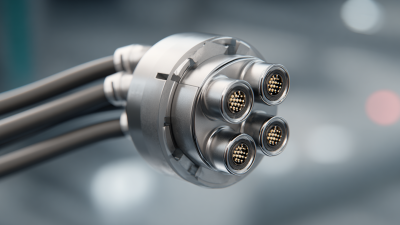
The Future of Innovation in Harness Connectors for Smart Technology
-

Exploring Industry Case Studies: The Versatile Use of Best Wire Harness Connectors
-

Proudly Made in China Best Elevator Connector for a Global Market
-

The Definitive Guide to Choosing the Best Automotive Circuit Connectors for Maximum Performance
Blog Tags:


